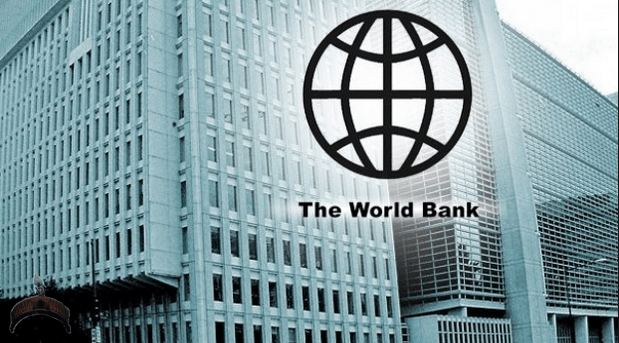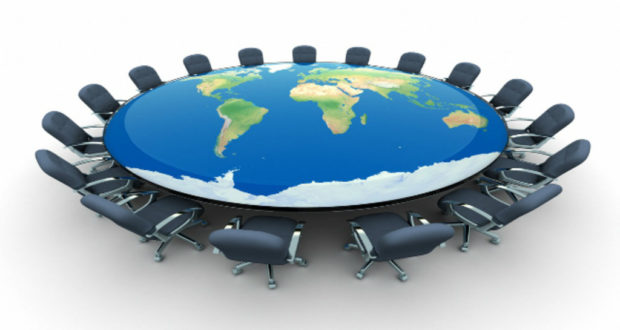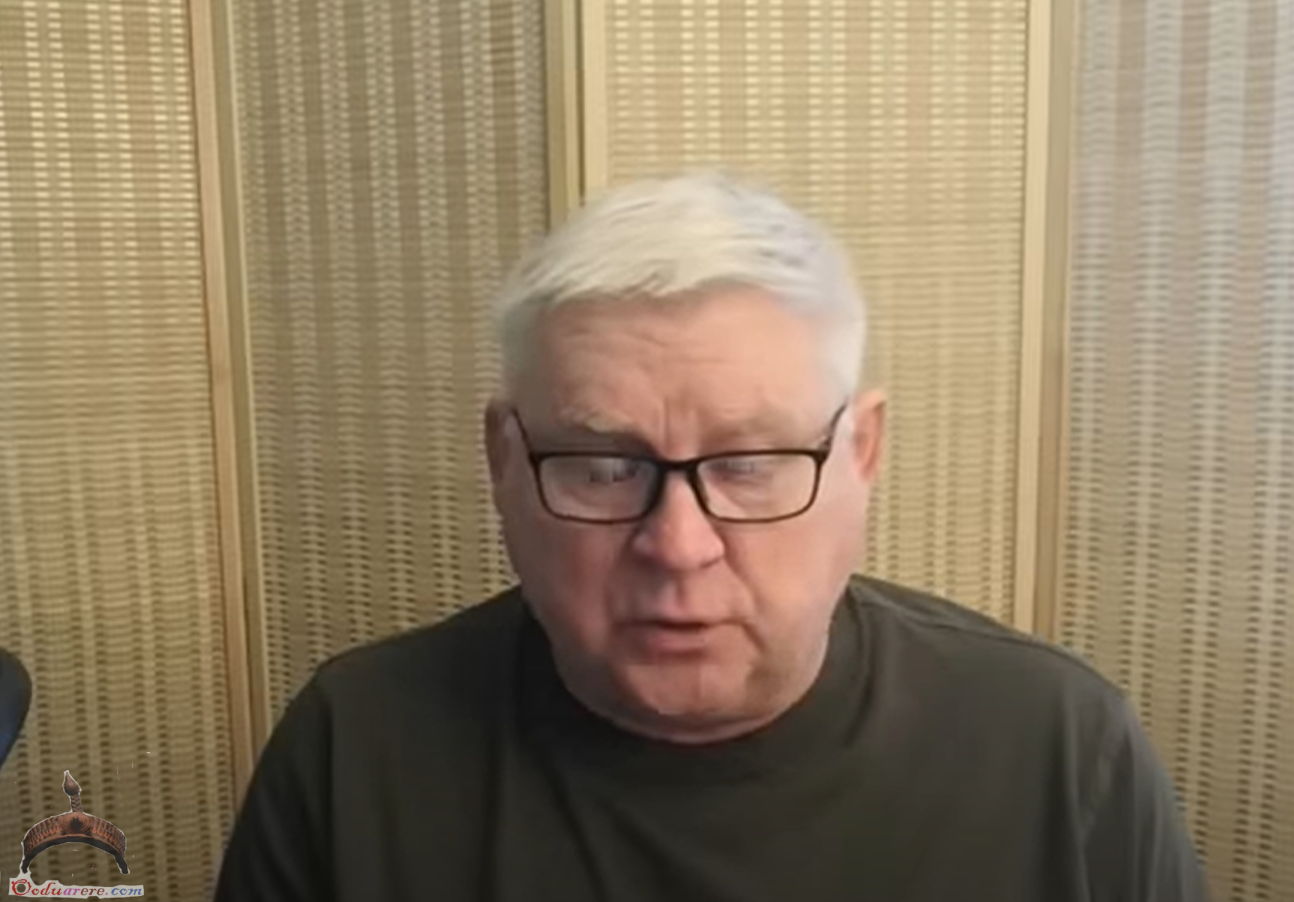by Francis Lee for Ooduarere via The Saker Blog
Unquestionably, the world – circa 2020 – seems currently to be moving away from democratic forms of rule and transmuting into more totalitarian systems (liberal totalitarianism if you will – see below). This has been a prolonged historical metamorphosis beginning in the late 19th century and ultimately borne out by a complete rejection of the Enlightenment and its values. The late 19th and the mid-20th century was to bear witness to the rise of anti-Enlightenment and reactionary modes of thought and social/political movements. But of course for every action there is a reaction. These historical tendencies were noted by writers, philosophers, and various other progressive thinkers of the time, and gave rise to a copious amount of dystopian literature, prior to and coincidental with the rise of totalitarian systems in both Stalinist Russia, Nazi Germany, and Fascist Italy. (These irrational ideologies of rule were predicated upon statist precepts which differed somewhat to the previous belief-systems which were a function of religious doctrines.) The new period experienced a monumental ideological-cum-political struggle between the contending parties of darkness and light. This irrationalist current was particularly virulent in Europe finding voice in the works of Georges Sorel, Henri Bergson, Oswald Spengler and other co-thinkers and was to influence Mussolini, Hitler and others. The Marxist thinker Georgy Lukacs summed up this reactionary weltanschuuang as follows:
‘’Sorel’s myth was so exclusively emotional, so empty of meaning that it could pass without difficulty into the demagogically exploited myth of fascism.
Mussolini wrote: ‘We have created a myth for ourselves. Myth is a faith, a passion. It does not have to be a reality. It is real by virtue of the fact that it is a spur and a faith, and signifies valour.’’ This is pure Sorel, and in it the epistemology of Pragmatism and Bergsonian intuition has become the vehicle of fascist ideology.’ Regarding pragmatism: it’s “whatever works.” We all need our faiths or myths, whether religious myths or scientific myths or whatever. The will to believe. We all have our own truths, beliefs that stimulate us or inspire us. And with Bergson you get the vitalism, intuition (a sort of irrationalist intuition), durée, hostility to the objective character of natural science, hostility to objective reason. All these cultural expressions, and many more of a less ‘disinterestedly philosophical’ character, belong to a particular zeitgeist.’’
These philosophical currents of thought began to fall on fertile ground particularly in Europe and indeed the world. But the political breakthrough did not come until the 1930s. The Wall Street Crash of 1929 and its ramifications was to spread from the United States to Europe. There then began a long-period of debt-deflation with mass unemployment in both Europe and the United States. Without this economic and political crisis Fascism would have been confined to cranks and fringe lunatic political elements, but the desperation and despair to which it gave rise was to take on a political dimension. Social and political disintegration led to an increase in the popular appeal of a quasi-religious political form – fascism – and began to mobilise an army of followers at all levels. This was to become an anti-democratic, anti-parliamentary, anti-socialist movement which came to power and launched into a full-scale war with the imperial democracies and the Soviet Union. This conflict was not conducted by the Marquess of Queensbury rules. The full-scale horror of industrialised conflict and ‘total war’ were utilised by both sides against the civilian populations without exception. But the war was eventually won, in Europe mainly by the Soviet Union, and in the far east, (Burma and Malaya) and Pacific by the Anglo-American forces.
The New Era
Thus the WW2 conflict was, apart from some mopping up operations, over by the second half of the 20th century; the struggles against the war-time fascist totalitarian states had been won. The imperial democracies and the Soviet Union had been victorious. The forces of darkness had been banished … or so it appeared. But new conflicts in the Global South and middle-east were fermenting and beginning to break out into open war involving the imperial democracies: Britain, France, and the US, and are still ongoing. This wasn’t supposed to be in the script! What was (unsurprisingly) left out of account was the heavy weight of the imperialist yoke imposed and overseen by the imperial powers on the Global South. This hegemony was in place prior to and after WW2 notwithstanding, and maintained by brute force or political manipulation of one sort or another. The peoples’ of the Global South were not celebrating the banishment of totalitarianism, imperialism and the end of exploitation – and the western elites didn’t invite them to the celebration party in 1945. In one particular essay Orwell exposed imperialism for what it was in no uncertain terms …
‘’What we always forget is that the overwhelming bulk of the British proletariat does not live in Asia or Africa. It is not in Hitler’s power, for instance to make a penny an hour a normal industrial wage; it is perfectly normal in India, and we are at great pains to keep it so. One gets some idea of the real relationship that the per capita income in England is something over £80, and in India about £7. It is quite common for the Indian coolies leg to be thinner than the average Englishman’s arm. And there is nothing racial in this, for well-fed members of the same races are of normal physique; it is due to simple starvation. This is the system which we all live on and which we denounce when it seems no danger of its being altered. Of late, however, it has become a first duty of a ‘good anti-Fascist’ to lie about it and keep it in being.
What real settlement, of the slightest value, can there be along these lines? What meaning would there be in bringing down Hitler’s system in order to stabilize something that is far bigger and in its different way just as bad?’’ (1) As usual Orwell was very prescient.
US Imperialism Waxes – Euro Imperialism Wanes
This imperialist reality described above still pertains albeit in a rather different form. The long retreat from empire by Britain, France and Portugal who were forced out of their colonies by an inability to bear the economic costs of maintenance. Into the gap stepped the new would-be global hegemon – the United States. Only now a new global imperial reconfiguration comes into existence. This comprised a dUS Imperialism Waxes – Euro Imperialism Wanese facto global empire with the US at the apex and a second tier of nominally democratic and pliant western states in Europe and South East Asia (Japan, South Korea, Taiwan). Then a third tier of comprador regimes in Africa, Asia, and Latin America. This latter group was ruled over by thuggish elites being subcontracted by western governments and institutions such as the IMF and WB whose policies i.e., ‘Structural Adjustment Programmes’ , and World Bank ‘development strategies’ were designed to keep the indigenous population in subservience and poverty by all means possible.
This division of the world into exploiters, exploited and super-exploited divided up between the imperial powers and the subject powers is more central to all the other political issues of our time and as a matter of fact always has been. The last 30 or 40 years have been characterised by an offensive by the existing liberal-imperialist juggernaut which has been directed against all the peoples, but more particularly all those peoples of the South located at the periphery of the globalist system.

This division of the world between the imperial heartlands of the North Atlantic and the Global South was cemented in 1944 by the setting up of particular institutions – i.e., the International Monetary Fund (IMF), the World Bank – (International Bank of Reconstruction and Development and International Development Association) who were both the progeny of the Bretton Woods Agreement created at the international conference convened in Bretton Woods, a small town in New Hampshire. The putative goal of the conference was to establish a framework for economic cooperation and development that would lead to a more stable and prosperous global economy. While this goal remains central to both institutions, their work is constantly evolving in response to new economic developments and challenges. However, these institutions were, either by accident or design, to become a mechanism for imposing a de facto dominance of the developed over the developing world. But the developed world itself was no longer an independent force in the post-war geopolitical configuration. As already stated the US’s emergence was the independent and dominant hegemon among other capitalist/imperialist states. No states in Europe, or in Japan, South, Korea, and Taiwan, particularly those in NATO are in any meaningful sense, independent or sovereign; this became increasingly apparent as the US is prioritising its own interests at the expense of its Euro-Atlantic ‘partners’.
At the end of WW2 the US began to throw its weight around; and it hasn’t ceased doing so. Europe was in a weak economic position which meant the Americans could call the tune with regard to the post-war settlement Britain being the first in line. Unsurprisingly and in keeping with its subaltern position vis-a-vis the US the UK was at the head of the queue in agreement with the American proposals, followed by continental Europe and finally the less developed countries. First item on the agenda was the Sterling Area and the future status of the UK. At that time the greatest political/strategic obstacle to US expansion was the existence of the British Empire, whose tariff protection system would have to be dismantled. The UK itself was in a parlous economic position having been bankrupted by WW2; its position was in fact analogous to that of Germany after WW1. The Americans were not unaware of this and followed through with an unsentimental demolition of Britain’s pre-war status. The US weapon of choice was a loan to the impecunious UK. This would break up the Sterling Area and open it up to US commercial and strategic interests. The US$ was to thus supplant the British £ as the world’s reserve currency.
‘’The first loan on the post-war agenda was the British Loan which, as President Truman announced it in forwarding it to Congress would set the course of American and British relations for many years to come.’’ He was right, for the Anglo-American Loan Agreement spelled the end of Britain as a Great Power.’’ (2)
It should go without saying that the struggle for freedom and independence will only be carried through at the national level. This has been forestalled by the US’s complete control and dominance in Europe and of the Indo Pacific regions including Japan, South Korea, Australia and New Zealand. This is indeed ironic since all of these states imagine that they are independent, sovereign and part of a ‘‘Free World.’’
Europe has in effect been humbled before the Behemoth and must pay tribute – quite literally in terms of its dollar assets which are only convertible into US Treasuries, not gold, the ‘exorbitant privilege’, enjoyed by the Americans at the expense of its brain-dead European, Japanese and South Korean ‘allies’ – and reverence toward their US masters. Without any doubt this Americanization of Europe which established a foothold during WW2 has progressed during the past half-century.
‘’It degrades Europe, causes it to regress, forces it to abandon everything progressive in its contribution to the capitalist stage of human development … ‘Old Europe’ has nothing to learn from ‘young America.’ There will be no progress possible on any European project at all until the American strategy is challenged and overcome.’’ (3)
Who Rules the World and How?
Initially The International Monetary Fund (IMF) and the World Bank (IBRD and IDA) were created in 1944, shortly before the end of World War II. They are now based in Washington, DC. The primary role of the IMF was broadly speaking designed to promote international economic cooperation and provide its member countries with short term loans in order to achieve trade balances with other countries (achieve balance of payments). But during the 1980s the IMF arrogated to itself an expanded role of lending money to “bailout” countries during financial crises. This enabled the IMF leverage to begin designing economic policies for over 60 countries. Moreover, it should be emphasised that in terms of voting on policy issues the United States for those decisions required 85 percent of member agreement by voting share, such as the adjustment of quotas, compulsory withdrawal of member nations (effectively expulsion), or amendments to the IMF’s Articles of Agreement, the United States enjoys effective veto power.
The IMF & WORLD BANK:
Of course those nominally ‘sovereign’ states have to follow IMF-approved policies to get the IMF’s loans, international assistance, and even debt relief. Thus, the IMF has enormous influence not only in structuring the global economy, but also on real-life issues such as poverty, environmental sustainability and development.
The IMF is one of the most powerful institutions on Earth–yet few know what it is. The guidelines imposed by the IMF are the notorious Structural Adjustment Policies (SAPs). These are all based upon the fashionable neoliberal policy criteria, as follows:
Typical stabilization policies – AKA Structural Adjustment Policies (SAP)
1. balance of payments deficit reductions through currency devaluation = SAP
2. budget deficit reduction through higher taxes and lower government spending, AKA austerity = SAP
3. restructuring foreign debts
4. monetary policy to finance government deficits (loans from central bank – with strings. = SAP
5. raising food prices to cut the burden of subsidies = SAP
6. raising the price of public services = SAP
7. cutting wages = SAP
8. reducing domestic credit. = SAP
9. ‘Reforming’ pensions. = SAP. Marvelous word ‘Reforming’
10. Deregulation of Labour market. = SAP aka Smashing Labour unions
Longer-term ‘structural adjustment’ policies usually include:
1. liberalization of markets to guarantee a price mechanism = SAP
2. privatization, or divestiture, of all or part of state-owned enterprises = SAP
3. creating new financial institutions. Hedge Funds, Shadow Banks, Private Equity = SAP
4. improving governance and fighting corruption – paraphrasing Gandhi, It would be a good idea!
5. enhancing the rights of foreign investors vis-à-vis national laws = SAP
6. focusing economic output on direct export and resource extraction = SAP. AKA Creating a peripheral economy
7. increasing the stability of investment (by supplementing foreign direct investment with the opening of domestic stock markets). Financialization of the host economy = SAP
These policies require countries to cut spending on education and health; eliminate basic foods and transportation subsidies; devalue national currencies to make exports cheaper; privatize national assets; and freeze wages. These policies increase poverty, reduce countries’ ability to develop strong domestic economies and allow multinational corporations to exploit workers and pollute the environment. These outcomes are to be expected.
Additionally, IMF interventions in terms of bailouts resulting from neoliberal policies usually made existing policies even worse. During financial crises, such as with Mexico in 1995 and South Korea, Indonesia, Thailand, Brazil, and Russia in 1997, the IMF stepped in as the lender of last resort to “bail out” countries with huge loan packages. Yet these IMF bailouts in the Asian financial crisis (1997/08) did not stop the financial panic, instead the crisis deepened and spread to more countries. The policies imposed as conditions of these loans were bad medicine, causing layoffs in the short run and undermining development in the long run. In South Korea, the IMF sparked a recession by raising interest rates and lowering the currency, resulting in more bankruptcies, increased unemployment, and government spending cuts. Unfortunately these policies were not limited to East Asia. Under the IMF-imposed economic reforms after the peso bailout in 1995, the number of Mexicans living in extreme poverty increased more than 50% and the national average minimum wage fell 20%. (4)
Suffice it to say that such policies have been a disaster for people not only of the Global South but also of the ‘developed’ world.
‘’Karen Hudes is a graduate of Yale Law School and she worked in the legal department of the World Bank for more than 20 years. In fact, when she was fired for blowing the whistle on corruption inside the World Bank, she held the position of Senior Counsel.
She points out that: ‘‘The goal is control. They want all of us enslaved to debt, they want all of our governments enslaved to debt, and they want all of our politicians addicted to the huge financial contributions that they funnel into their campaigns. Since the elite also own all of the big media companies, the mainstream media never lets us in on the secret that there is something fundamentally wrong with the way that our system works.’’
At bottom there is little to separate the IMF & World Bank. They have become the principal tools by which the new global managers maintain corporate control over nations and peoples, especially in the South. Both the Bank and the IMF are directly linked to the Transnational financial sector vis-à-vis the borrowing and lending ends of their operations. Loan agreements are routinely negotiated in secret between banking and government officials who, for the most part, are not accountable to people on whose behalf they are obligating the national treasury to foreign lenders.
‘’The officials of these organizations often have the power to ‘rewrite a country’s trade policy, fiscal policies, civil service requirements, Labour laws, health care arrangements, environmental regulations, energy policy, resettlement requirements, procurement rules and budgetary policy.’’ (5)
It would not be an exaggeration to state that the public policy prescriptions of the IMF/WB are merely for public consumption – PR purposes. But construction of the real policies and their implementation are carried out behind closed doors.
Summary:
Thus, from the middle 19th to the 20th and early 21st century an historical pattern has been played out in terms of geopolitics, economics, culture and war. Huge tectonic shifts have taken place; paradigms that were thought permanent have collapsed to be replaced by new paradigms. Elite political power was never absolute but always adaptive, transforming itself from one structure – e.g. monarchy – to democracy – and then from democracy to oligarchy which is the present mode of rule and dominance. For elements of the non-elite there was always the possibility of a genuine democracy, but it somehow always slipped from their grasp. To quote William Shakespeare, Richard III, ‘now is the winter of our discontent’ – which in this year of blight, (2020) is the dominant paradigm of financialized imperialism – a system overseen by a totally corrupt global clique who seem to be frankly deranged.
The question which now (alarmingly) confronts humanity and which should be placed at the centre of any discussion is whether the establishment of the liberal-globalist economic, social and political order and eventual outcome is ‘final’ – in Fukuyama’s words ‘the end of history’ or on the contrary whether it is ‘sustainable’.
‘’Some – perhaps many? – believe that the transformation is final, even if it is unpleasant. The only thing which is possible now is to adjust, at best inflect, its movement to give space to a few social considerations, and nothing else. The dominance of the strategies of the groups under consideration and the withering away of states must be accepted. (Such, in sum, is the option of the social-democrats who have changed into social-liberals). Some even see in that change a ‘positive’ transformation which, in itself, heralds a better future. This capitalism is then said to constitute an unsurpassable horizon (a conception which underlies the social-liberal option, or that it will outlive itself through its own movement which amounts to the same thing. According to the finalist camp who believe that there is no need to act against the transformation under consideration. Farewell socialism an outdated 19th century utopia.
My (Amin) analysis takes a distance from that view. I would argue that on the contrary the current transformation that capitalism has reached testifies to its obsolescent (senile) stage … which means that the finalist stage is quite simply not sustainable. (6)
End of argument.
NOTES
(1) George Orwell – Not Counting Niggers – Collected Essays and Letters -p.434 – An Age Like This
(2) Michael Hudson – Super Imperialism – pp.268/269
(3)Samir Amin – The Liberal Virus – p.95
(4) Stiglitz – Globalization and its Discontents – Ibid.
(5) T.Clarke, inter alia – Mechanisms of Corporate Rule – quoted in The Case Against Globalization. – pp.300/301
(6) Samir Amin – From Capitalism to Civilization – Chapter 4, p.101.
——-
Francis Lee in his own words: “I was born in a town called Caversham which is to the west of London. This was in 1944, so I am a Bretton Woods baby! My mother had been evacuated from London as were all pregnant women, and despatched all over England to escape the V1 and V2 German rocket attacks. Scroll forward to 1975 when when I entered university as a mature student. I was at Oxford University (New College) and took an honours degree in Politics, Philosophy and Economics. After this I got a lecturing job at a college in South West London and remained there teaching for 18 years. During this time I also completed an MPhil degree, as a part time student and the London School of Economics, 1980-84. This was later published as a book. My politics are very eclectic ranging from the far left to the libertarian right and I have been writing for various anti-establishment publications for more than I can remember. I was in the Soviet Union in 1980 when Brezhnev was in power, visited friends in the US, California LA, and Washington, and got married to a Ukrainian lady from Donetsk which I visited many times from 2006 to 2012 and remember distinctly walking her little dog – Businka – around the Don Bass arena! She moved over to the UK in 2013 just before the trouble started.“
 Ọmọ Oòduà Naija Gist | News From Nigeria | Entertainment gist Nigeria|Networking|News.. Visit for Nigeria breaking news , Nigerian Movies , Naija music , Jobs In Nigeria , Naija News , Nollywood, Gist and more
Ọmọ Oòduà Naija Gist | News From Nigeria | Entertainment gist Nigeria|Networking|News.. Visit for Nigeria breaking news , Nigerian Movies , Naija music , Jobs In Nigeria , Naija News , Nollywood, Gist and more









